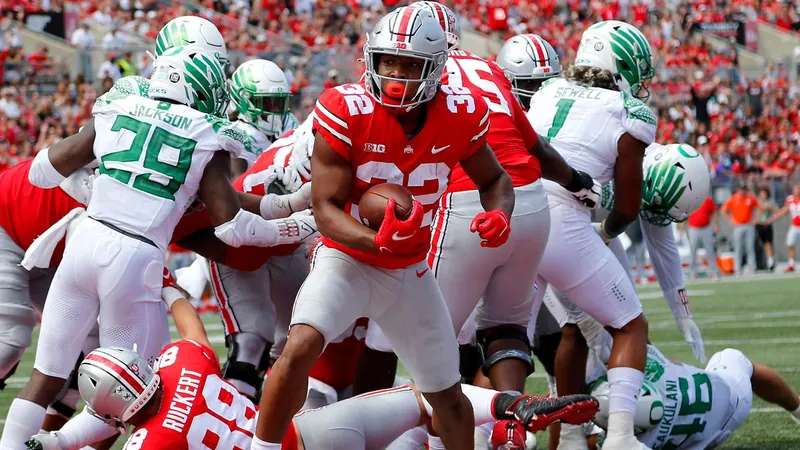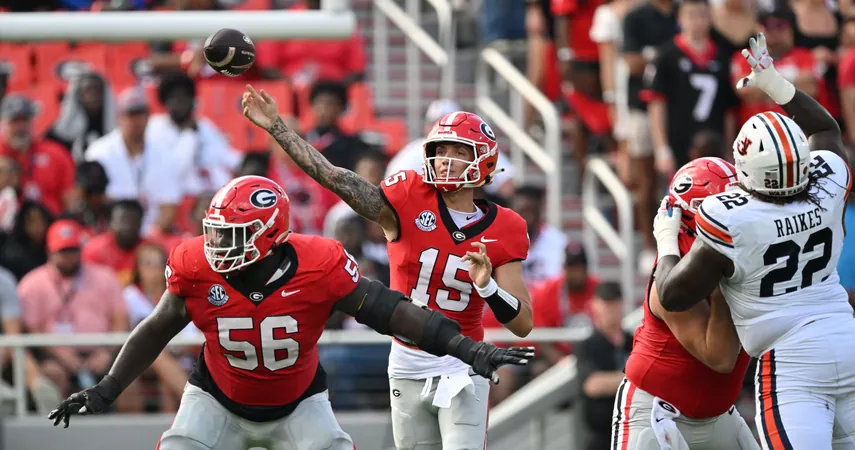
The Truth About Christopher Columbus: Final Resting Place Confirmed and Ethnic Origins Revealed!
2024-10-11
Author: Wai
Final Resting Place Confirmed
In a groundbreaking announcement just ahead of the long weekend, researchers have conclusively identified the final resting place of the infamous explorer Christopher Columbus, and they've uncovered details about his ethnic origins—though they are keeping that information under wraps for now.
The confirmation comes from a partial set of human remains located at the grand catafalque within Seville Cathedral in Spain. Forensic expert José Antonio Lorente of the University of Granada led the team that used genetic samples from Columbus's son Fernando and one of his brothers to validate the identity of the remains. "Thanks to advanced technology, we can definitively confirm that these are the remains of Christopher Columbus," Lorente stated during a press conference.
The Journey of Columbus's Remains
Columbus, known for his voyages across the Atlantic, passed away in 1506 in what is now Spain, expressing a desire to be buried on Hispaniola, the island that spans modern Haiti and the Dominican Republic. His remains were reportedly relocated to various places over the years, first taken to Hispaniola in 1542, then moved to Cuba in 1795, and ultimately finding their way to Seville in 1898 following the Spanish-American War.
A Long-Standing Debate
Over the last century, intense debates have arisen concerning whether Columbus's complete remains are housed in Seville or if parts still rest unofficially in the Dominican Republic. A notable finding in 1877 during an excavation at Santo Domingo Cathedral yielded a small lead box containing fragmented bones claimed to be Columbus’s. These remains, now housed within the Columbus Lighthouse in Santo Domingo Este, remain a point of contention, as the Seville set of remains is also known to be incomplete.
Mystery of Genetic Origins
As the mystery of Columbus's genetic origins looms, Lorente tantalizingly hinted at insights the DNA tests revealed without fully disclosing the details. Speculation around Columbus’s true lineage has persisted for centuries, with theories suggesting he could have been of Hebrew descent, or perhaps Greek, Basque, or Portuguese, leading to ongoing debates about his identity.
Upcoming Documentary
This intriguing investigation into Columbus’s ancestry will be featured in an upcoming documentary titled "Columbus DNA: The True Origin," which is set to premiere on Spain's national broadcaster TVE this Saturday. Lorente characterized the study as "very complicated" and promised that the findings would significantly contribute to further research and historical evaluations.
Legacy of Columbus
Columbus remains a polarizing figure in history. While celebrated as the man who "discovered" America during his 1492 voyage, historians emphasize that this description overlooks the complexities of his encounters, which primarily took place in the Caribbean rather than the continental United States. Critics argue that Columbus’s expeditions fostered the enslavement of indigenous populations and unleashed devastating diseases on native communities.
Yet, many Italian-Americans view Columbus as an iconic figure whose daring journeys paved the way for European settlement in the Americas, advocating for the celebration of his legacy. In light of these discussions, the United States now recognizes Indigenous Peoples Day alongside Columbus Day, making strides toward acknowledging the diverse narratives tied to this historical figure.
Conclusion
Stay tuned for further revelations regarding Columbus’s ethnicity and the full implications of this significant discovery!



 Brasil (PT)
Brasil (PT)
 Canada (EN)
Canada (EN)
 Chile (ES)
Chile (ES)
 España (ES)
España (ES)
 France (FR)
France (FR)
 Hong Kong (EN)
Hong Kong (EN)
 Italia (IT)
Italia (IT)
 日本 (JA)
日本 (JA)
 Magyarország (HU)
Magyarország (HU)
 Norge (NO)
Norge (NO)
 Polska (PL)
Polska (PL)
 Schweiz (DE)
Schweiz (DE)
 Singapore (EN)
Singapore (EN)
 Sverige (SV)
Sverige (SV)
 Suomi (FI)
Suomi (FI)
 Türkiye (TR)
Türkiye (TR)